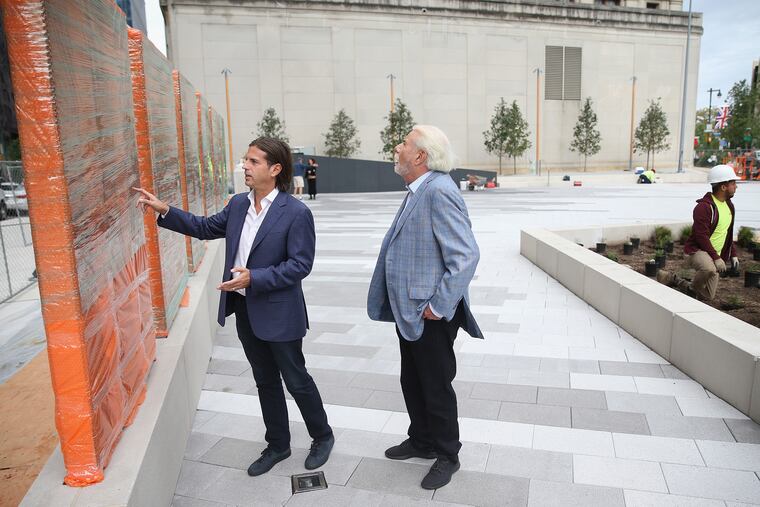Why we need Holocaust education now more than ever | Opinion
The Philadelphia's Holocaust Memorial Plaza is reopening with a reimagined mission.

Monday marks an important chapter in Philadelphia's history, both as home to one of the nation's most populous Jewish communities and our centuries-long tradition of religious tolerance and acceptance. Thanks to unprecedented philanthropic efforts that led to a multi-million renovation, Philadelphia's Holocaust Memorial Plaza is reopening with a reimagined mission as a "living classroom," enhancing the study of the Holocaust with modern technology. This new plaza for remembrance and learning comes at a critical time in our nation's history, when we are seeing a disturbing uptick in anti-Semitism and hate-based attacks as well as dangerous, bigoted rhetoric in our public discourse.
According to the Anti-Defamation League, anti-Semitic incidents rose nearly 60 percent between 2016 and 2017, the largest single-year jump the organization has ever recorded. In the past year, we saw Nazis march openly in Charlottesville, an increase in the number of threats and vandalism at Jewish institutions across the country, and a disturbing callousness in the public sphere, particularly on the Internet. Earlier this month, a Pittsburgh-area man made headlines for his brazen display of a swastika flag outside his home, hung in an effort to intimidate his neighbors.
As distressing as these incidents are, we know that we have several tools at our disposal to prevent them.
Twenty-five years ago, the University of Southern California's Shoah Foundation was established by Steven Spielberg to collect testimonies of Holocaust survivors and witnesses. Today, the collection houses more than 115,000 hours of remembrances by survivors of genocide from all over the world. Three years ago, Pennsylvania became just the fifth state to pass legislation encouraging all schools to teach middle and high school students about the Holocaust, other acts of genocide, and the consequences of ignorance and discrimination. Understanding how and why the Holocaust occurred helps to demonstrate not only the horrors that humans are capable of in desperate conditions but also the hope that can survive even the most terrifying trauma. Teaching students about the Holocaust shows the dangers of prejudice and how dehumanization and scapegoating are used to advance an agenda. Furthermore, and of vast importance in these troubled times, teaching the Holocaust demonstrates how delicate our institutions of democracy and civil society can be, and why they must be safeguarded and protected by and for all people.
It's one thing to read about the Holocaust in a history book, or listen to a teacher lecture about it. It's completely another to experience history through the eyes of a survivor and to hear their stories firsthand. That is why USC Shoah Foundation's IWalk app — making its U.S. debut at Philadelphia's Holocaust Memorial Plaza — is such an incredible tool. IWalk connects symbolic elements of the plaza with audio and video memories of Holocaust-related events, enhancing the visitor experience through multimedia. It also ensures Philadelphia-area survivor testimonies, via the USC Shoah Foundation's extensive resources, reach an ever-growing global audience.
Thanks to early laws protecting religious freedom, Philadelphia was our nation's first "melting pot." Thanks to an enterprising group of Holocaust survivors, it was the site of our country's very first Holocaust memorial, dedicated in 1964. Thanks to motivated educators and activists, we are now counted among the few states that have recognized the importance of teaching the Holocaust. Together, we can continue to lead the way well into the new millennium, engaging with 21st-century technology to promote tolerance and acceptance. If the past year has taught us anything, it is that we still have a lot to learn from history.
David Adelman is CEO of Campus Apartments and chairman of the board of the Philadelphia Holocaust Remembrance Foundation. Steve Cozen is founder and chairman of Cozen O'Connor, a Philadelphia-based global law firm, and chair of the board of councilors of USC Shoah Foundation.